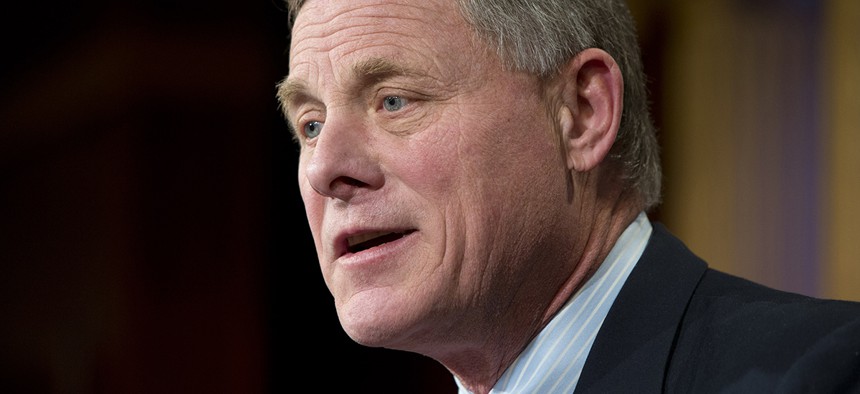Senators Investigate Role of Encryption in Paris Attacks

Sen. Richard Burr, R-N.C. Jacquelyn Martin/AP File Photo
Lawmakers want to know whether encryption allowed the attackers to keep their communications covert.
The terrorists who killed at least 129 people in Paris likely used encryption tools to plot their attacks without alerting government intelligence agencies, two key senators said Tuesday.
Senate Intelligence Committee Chairman Richard Burr and ranking member Dianne Feinstein said they plan to consider proposals to ensure government intelligence agencies can access communications.
“It’s a wake-up call for America and for our global partners that we need to begin the debate on what we do on encrypted networks because it makes us blind to the communications and to the actions of potential adversaries,” Burr told reporters after leaving a classified briefing from U.S. intelligence officials.
But Burr acknowledged that he doesn’t know if the attackers relied on any particular application or service to encrypt their communications. “We think that [encryption is] a likely communications tool because we didn’t pick up any direct communication,” he explained.
Burr also emphasized that the committee is on an “exploratory route,” and it is too early to discuss any specifics about possible legislation. “We need to figure what can and should be done about [encryption]— if anything,” Feinstein agreed.
The leaders of the FBI and CIA have also complained in recent months about the problem of terrorists “going dark” from surveillance by using encrypted platforms. But privacy advocates and technology companies have fiercely pushed back against any proposals to undermine encryption.
They argue that any government-mandated backdoor in encryption could also be exploited by hackers to do harm.
“The reality is that encryption protects security,” Chris Calabrese, the vice president for policy at the Center for Democracy and Technology, said in an interview. “It underlines the security of our banking, our transactions, our voting. Everything we do online is secure because we have encryption.”
The White House said last month that it won’t ask for Congress to pass legislation to thwart encryption. Mark Stroh, a White House spokesman, declined Tuesday to provide any additional information on the administration’s position on the issue in the wake of the Paris attacks.
Burr dismissed the technology industry’s argument that encryption is essential for public trust in their products.
“We don’t have a responsibility to sell their products. We have a responsibility to keep America safe,” Burr said. “If it means that people are going to have to change their business models, then so be it.”



